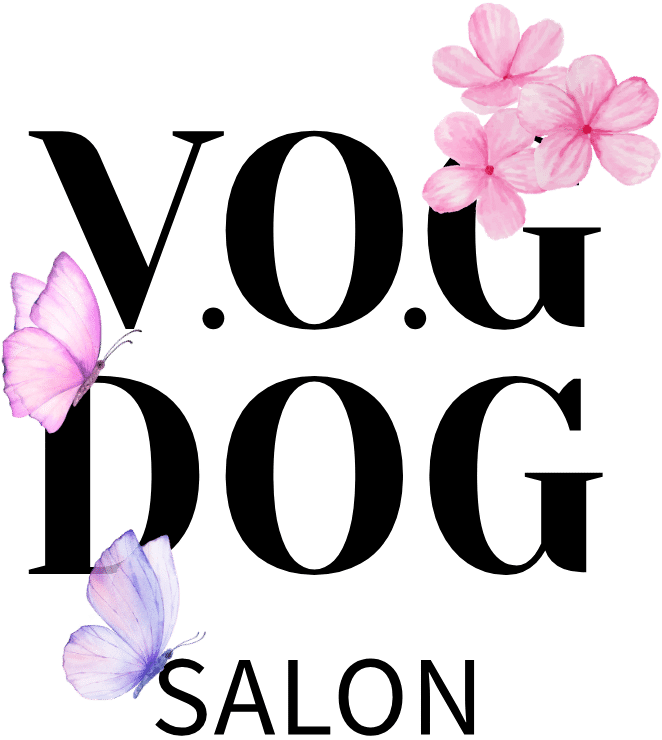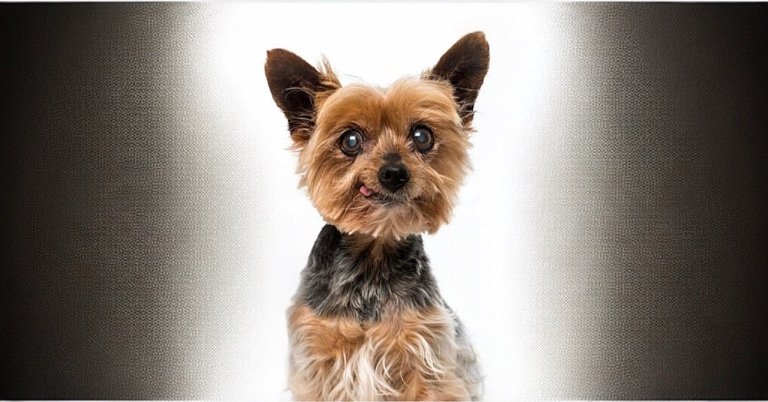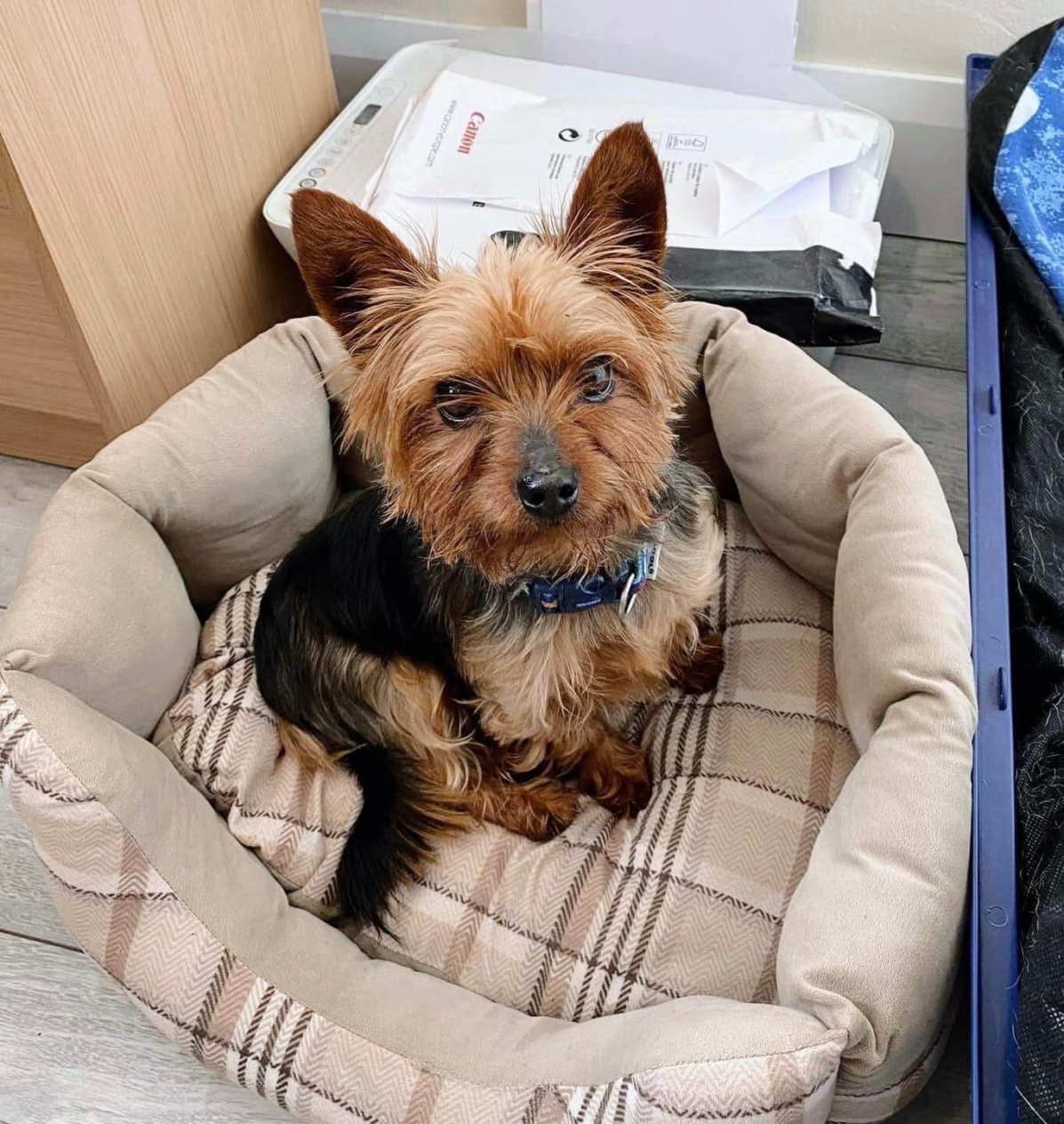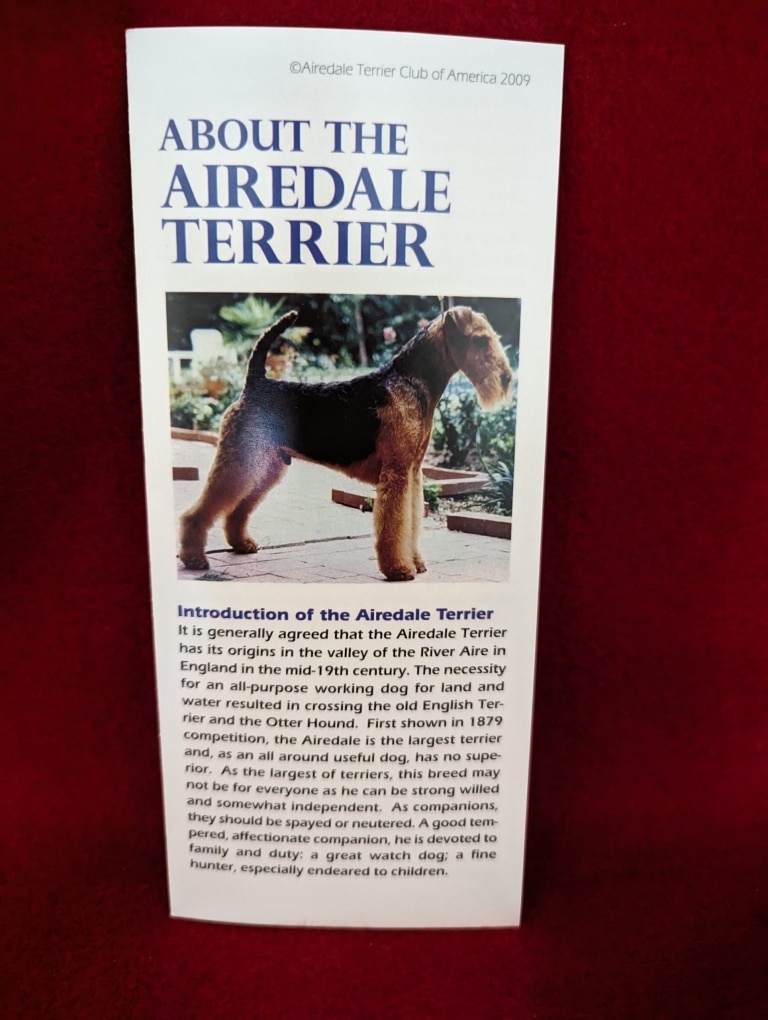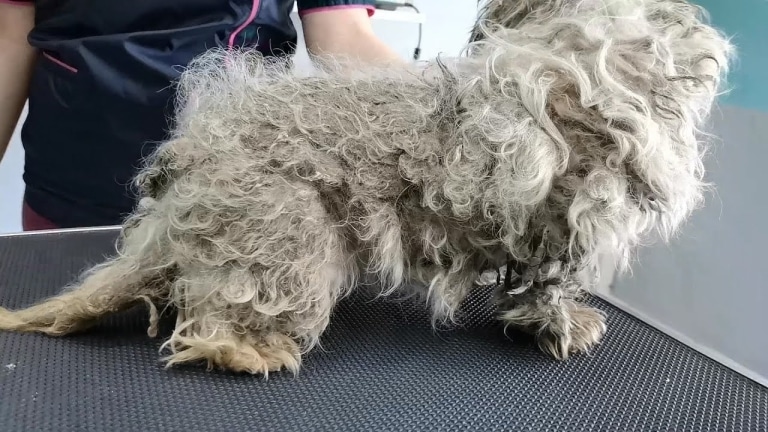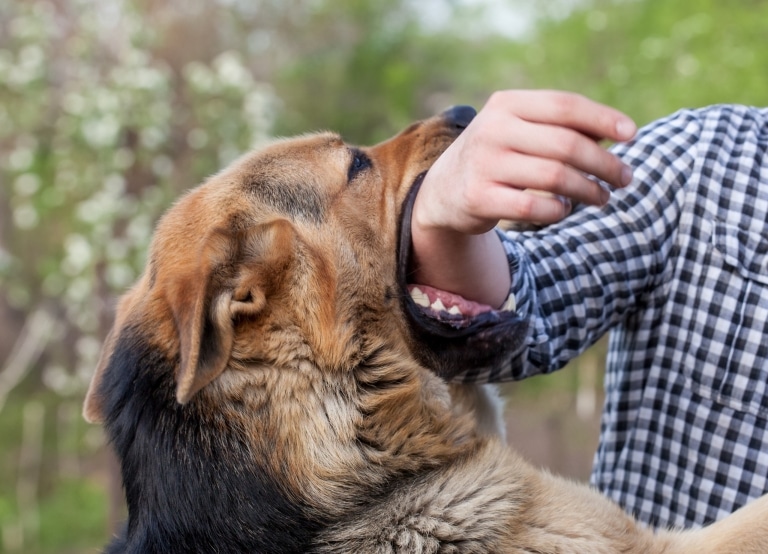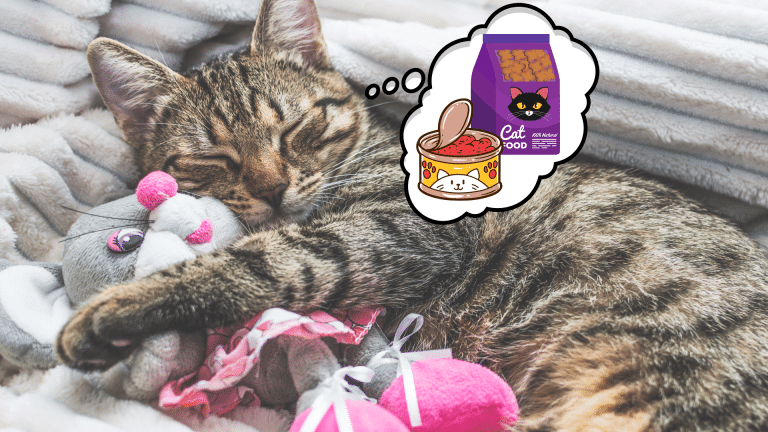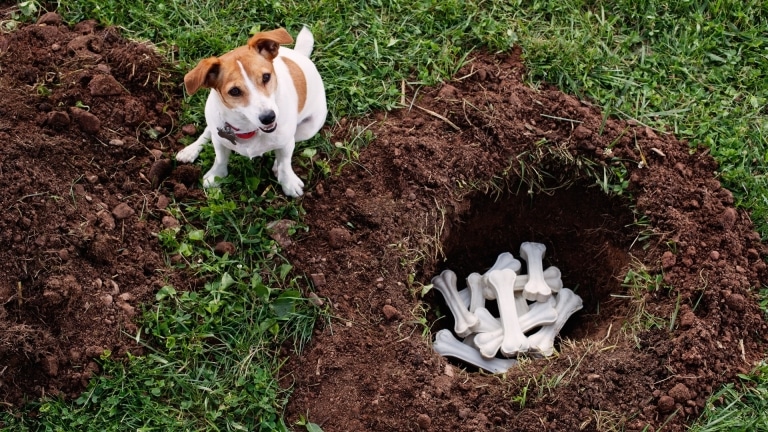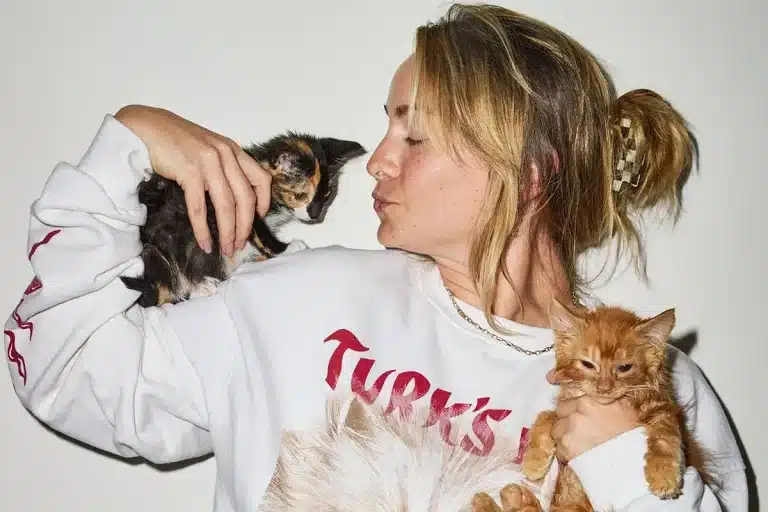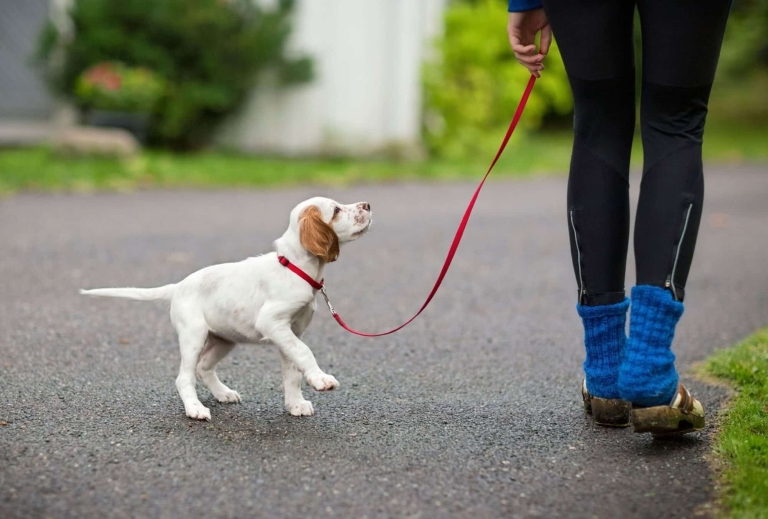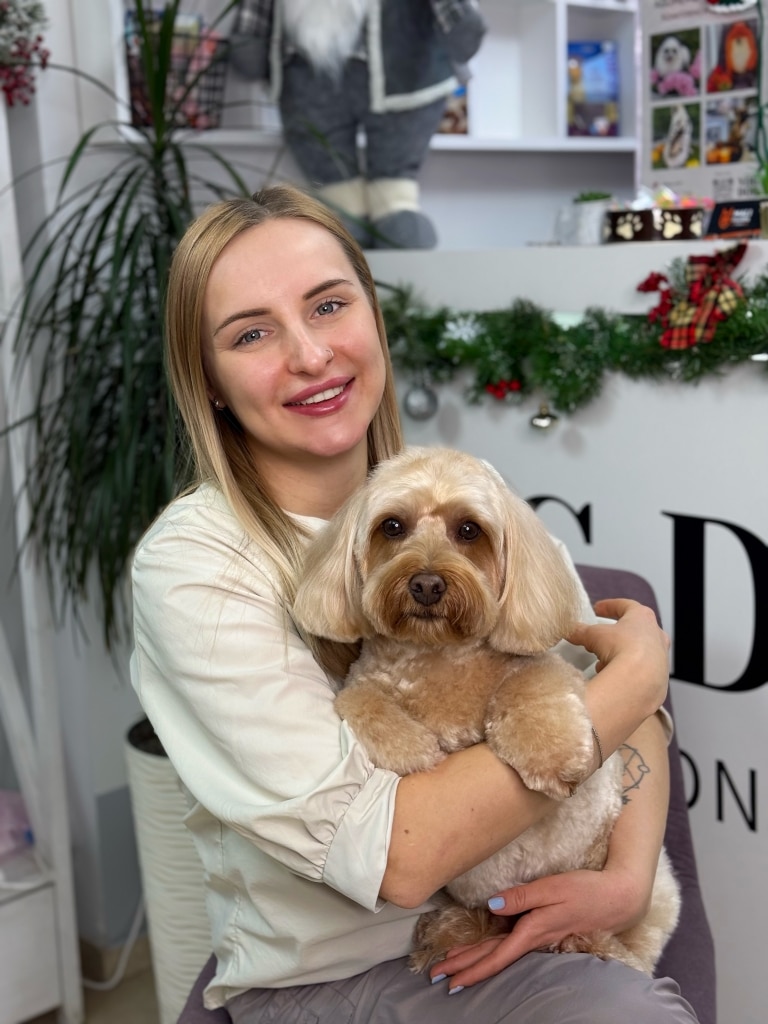The small, frisky and playful Yorkshire Terrier, which everyone is used to seeing as a cheerful, unflappable troublemaker, changes with age. Aging in these dogs comes gradually, but an attentive owner will always notice the first signals. In this article we will tell you how to understand that the Yorkie is aging, how to properly care for him in adulthood and how to give your Ponytail long and comfortable years.
The first signs of aging in a yorkie
Typically, the Yorkshire Terrier begins to age at the age of 8-10 years, although much depends on lifestyle, genetics, and nutrition. One of the first changes is a decrease in activity. The dog is no longer as eager to run on walks, sleeps more and may seem less interested in playing. The appearance also changes – the coat loses its luster, becomes duller or less frequent, gray hairs may appear, especially around the muzzle. The eyes lose their luster and vision may become impaired. Some dogs begin to hear worse or respond slower to commands. Another warning sign is a change in appetite, either eating less or gaining weight quickly due to decreased mobility.
Behavioral changes in a senior yorkie
With age, the character of the yorkie also changes. He may become less patient, avoid contact with active children or other animals, get tired of loud noises or guests more quickly. Sometimes irritability appears, or vice versa – the dog becomes too calm, keeps to the side. There may be increased anxiety – the yorkie is more difficult to stay alone, he may whine or search for the owner throughout the house. Sometimes there is confusion in actions: the doggie forgets where the bowl lies or how to get up on the favorite sofa. These are all normal age-related changes that require special attention and understanding.
How to care for an elderly yorkie?
Care for an elderly yorkie should be delicate and thoughtful. First of all, it is worth reconsidering the nutrition. Special foods for senior dogs will help to reduce the load on the liver, kidneys and heart, as well as support joints and immunity. If your yorkie is on a natural diet, consult your veterinarian about the diet. Don’t forget about weight control: excess weight can be dangerous.
Physical activity is reduced, but not completely eliminated. Walks should be regular but relaxed. The main thing is not to overwork the dog, avoid heat and cold.
Regular check-ups at the veterinarian are a must. An elderly yorkie needs more frequent checks of the heart, teeth, liver and urinary system. Dental problems are a common occurrence in older age, so brushing or preventing inflammation is very important.
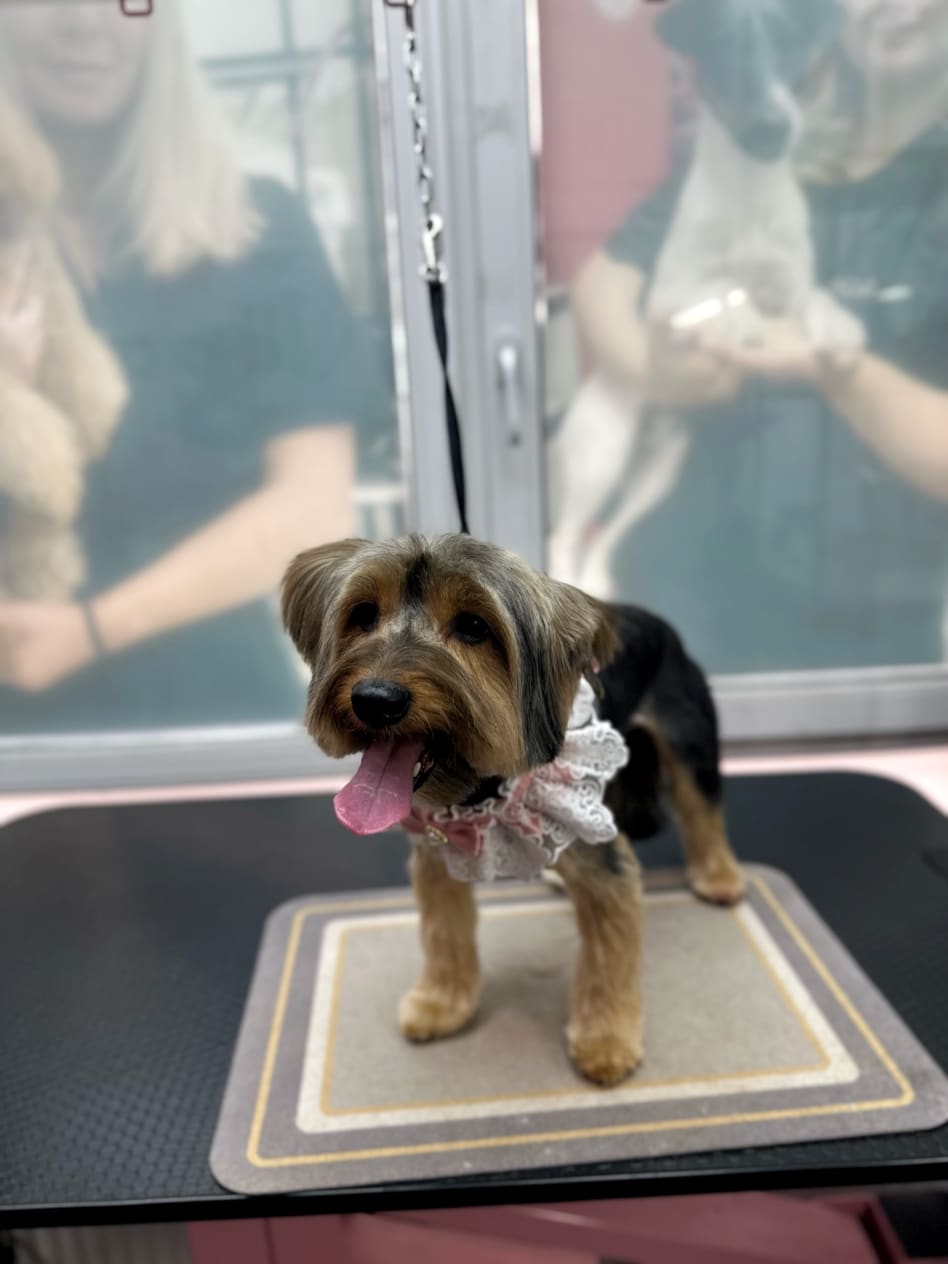
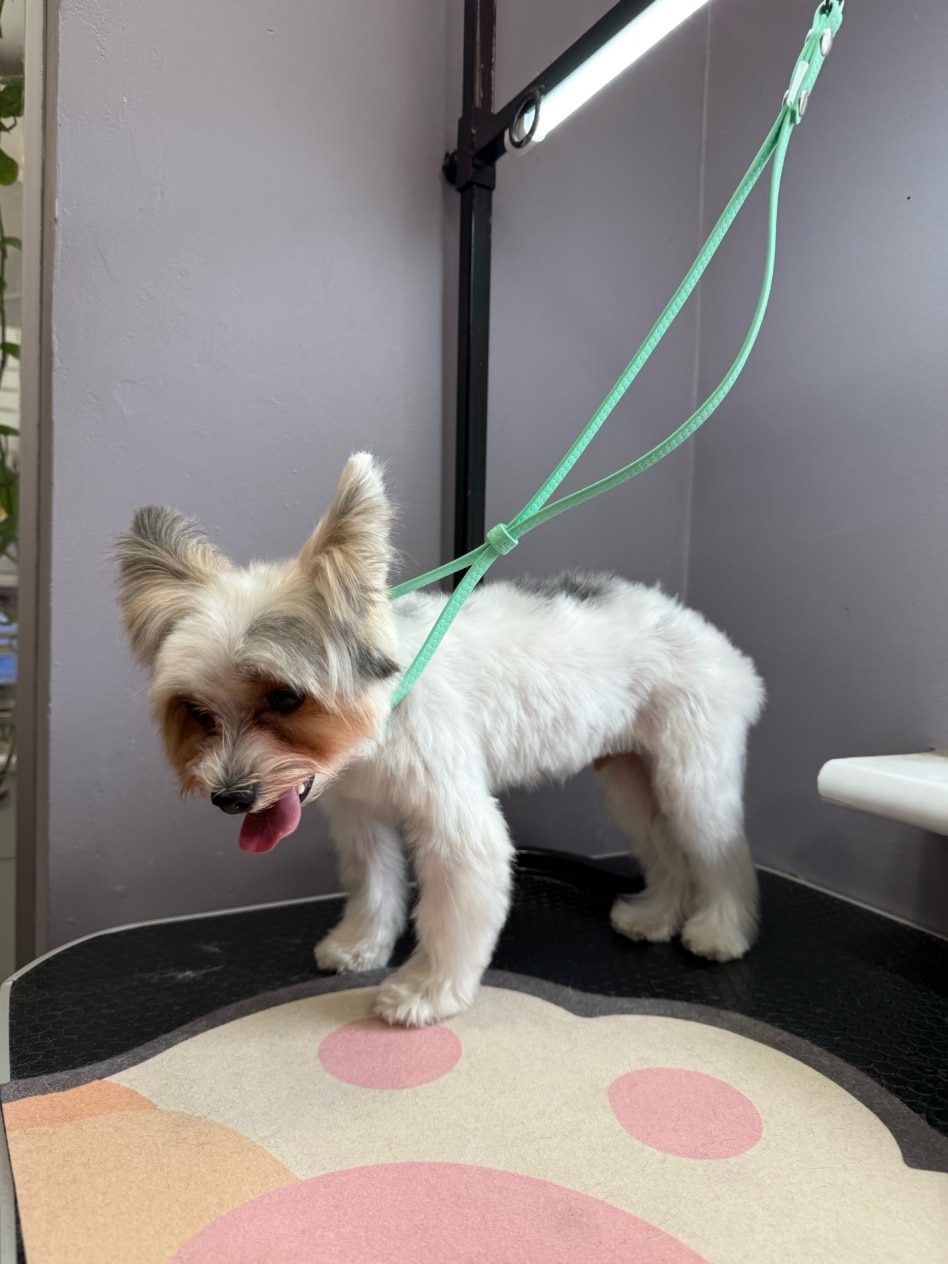
On grooming – an older yorkie’s coat requires softer, but still regular grooming. It is easier to tangle, so daily brushing with a soft brush is a must. A yorkie haircut should be comfortable, especially in summer – a short hygienic version will make life easier for both the yorkie and you. In V.O.G DOG SALON salons grooming for older dogs is carried out with special care: groomers take into account the age, temperament, chronic diseases and stress resistance of the dog, so that each visit was not a burden, but a pleasant care.
Emotional support and care are most important
Old age is not a judgment, but a new stage in life. Your Yorkie won’t become less loving or loyal, he just needs your care more than before. Talk to him, pet him, create a cozy place to rest, avoid changes in his environment. An elderly yorkie reacts acutely to the loss of familiar things and people, so stability is the best gift you can give.
Remember: although physical activity is decreasing, the emotional need for companionship is only increasing. For a dog, you are the whole world. And it’s up to you to make sure that his mature life is long and happy.
